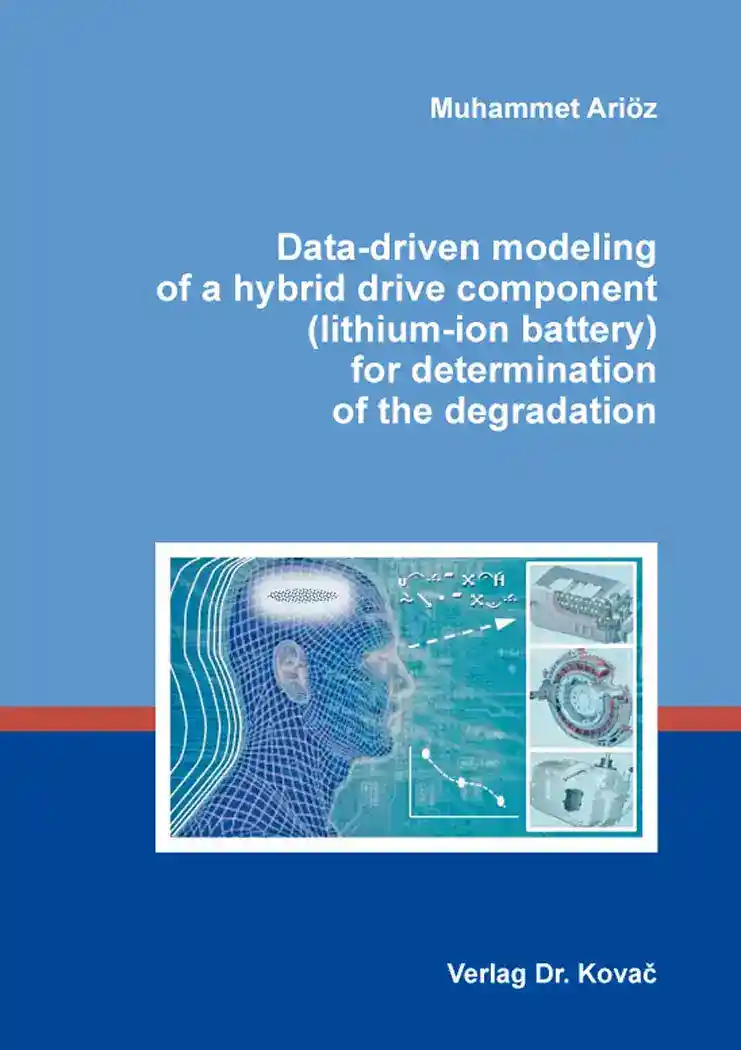Muhammet AriözData-driven modeling of a hybrid drive component (lithium-ion battery) for determination of the degradation
Schriftenreihe technische Forschungsergebnisse, volume 41
Hamburg 2020, 168 pages
ISBN 978-3-339-11984-1 (print) |ISBN 978-3-339-11985-8 (eBook)
About this book deutschenglish
The automotive industry is facing enormous challenges due to statutory regulations for CO2 reduction and society’s increasing expectations for eco-friendly vehicles. Conventional drives are no longer able to comply with the new regulations. Purely electric drives can comply with the new regulations but are at a disadvantage in other fields such as charging speed and driving range.
Hybrid vehicles with lithium-ion technology combine the advantages of both drive systems and at the same time fulfil the new regulations. The more technical systems are used in a powertrain, the greater and more complicated the consequences such as malfunctions and functional failures due to inaccurate estimates of their reliability. Small deficits are nowadays closed with software updates. In case of larger deficits, the companies often have no other choice than to take back the vehicles through recall actions and to exchange the affected components at their own expense. Such defects are increasingly caused by disproportionately rapid aging of electrical components. In order to determine the reliability of the electrical components, degradation information is currently determined via diagnostic procedures by subjecting the vehicle to electrical stress during a workshop visit. However, this type of aging determination is very complex and costly.
In this work, two data-driven models are developed using artificial neural networks, which allow the degradation of the Li-ion battery to be determined from driving operation of a hybrid vehicle. Such models are immediately executable after implementation in the control unit and offer the possibility to initiate necessary countermeasures such as reducing performance requirements. Other benefits range from extending battery life, designing, and optimizing additional components, to automatically adapting the operating strategy to the degradation state of the battery.
Keywords
AIArtificial IntelligenceBatterieDatengesteuerte ModellierungDegradierungE-MobilitätHybridKIKünstliche IntelligenzLebensdauerLithium-IonMathematische ModellierungWissensentdeckungZuverlässigkeitIhr Werk im Verlag Dr. Kovač

Möchten Sie Ihre wissenschaftliche Arbeit publizieren? Erfahren Sie mehr über unsere günstigen Konditionen und unseren Service für Autorinnen und Autoren.
